Next webinar: Capacity Building for Marine Conservationists
Protecting our Marine Environment: specific capacities for special places!
- Monday, 20th April 2020
- 15:00 CET
- participation is free but registration is needed. Register here.
Protecting our seas and marine ecosystems is of utmost importance. On the EU level, there is a pressure for member states to increase their marine protected areas, to clean up coasts and safeguard species. The fragile balance of our marine ecosystems is threatened due to human activities, like fishing and tourism. Hence, any marine strategy needs to be people-based. And for that, our marine technicians need proper training and skills.
After learning in the last webinar how LIFE INTEMARES is engaging stakeholders at a local and national level, in this webinar, we will follow the topic of Marine protection. But this time focusing on needed skills and competencies.
Patricia Marti Puig (ES) will present two case studies about her capacity building work in marine conservation in the Atlantic Ocean and Mediterranean Sea. She will focus on the specific training needs of marine conservationists and, in particular, the competencies required for successful and inclusive stakeholder engagement approaches in the marine environment. The webinar will include an interactive question and answer round.
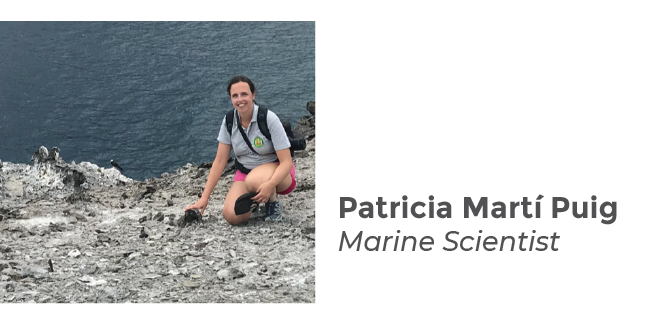
Patricia is a marine scientist with international experience in different fields including biodiversity and monitoring, conservation and restoration of marine biodiversity and in the science-policy-society interface. Born in Alicante, on the Mediterranean coast, Patricia is passionate about the conservation of marine biodiversity. With 14 years of international research and professional experience, she has directed and supported marine conservation projects in governments, NGOs, the private sector, and academia in the Mediterranean Sea, Atlantic, Pacific, Caribbean, Indian ocean and Red Sea. She has contributed in research, monitoring and management in several MPAs in the Mediterranean and overseas: Cabo de Palos, Port-cros, Portofino, Tavolara, Galapagos Marine Reserve and Ascension Island MPA. Her stated aim is to build the next generation of MPA managers, trained in transferable skills such as governance, management, stakeholder engagement, conflict management and socio-economic aspects of MPAs.
This webinar is an initiative of the Life e-Natura2000 blended course “Competent Inclusive Communications”.
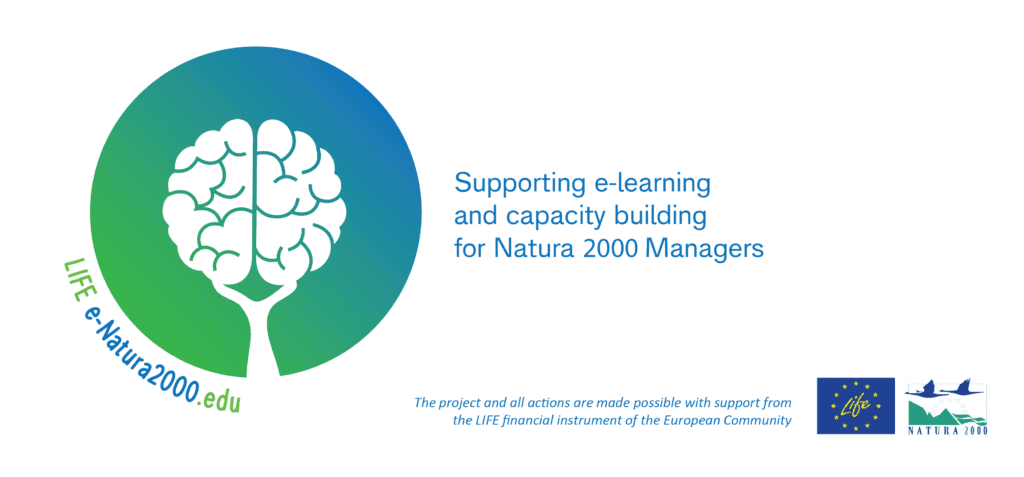
Previous Webinars
Information Sharing Event: Outdoor Sports in Protected Areas
On the 3rd of March, EUROPARC and ENOS organised an Information Sharing Event in Brussels, focused on the connection between nature conservation and outdoor sports. After the launch of the 10 Good Principles for Outdoor Sports in Protected Areas in 2019, this event was an opportunity to reinforce the connection between the sports and the nature sector, and to bring in the European Commission´s perspective.
Outdoor sports and nature conservation, drivers of a healthy, inclusive and sustainable society
The ”Outdoor sports and nature conservation, drivers of a healthy, inclusive and sustainable society” event was a fruitful discussion with multiple perspectives. Among the 40 participants from more than 10 countries, we could count on a wide range of stakeholders from different countries and nationalities. The lively debate was sustained by actors from different sectors, all connected to each other through Outdoor Sports in Protected Areas:
- Representatives from sports ministries and national governments
- Representatives of the European Institutions
- NGOs and representatives of sports organisations / federations
- Representatives of health organisations
- Private consultants and other professionals
The invited guests from the European Commission were Mr Nicola Notaro, Head of Nature Unit, DG ENV, Mr Yves Le Lostecque, Head of Sport Unit, DG EAC, and political assistants from Members of the European Parliament (MEPs) who will take the conclusions and recommendations to the European Parliament. They provided an interesting perspective on how the Green Deal could influence the real policies for outdoor recreation in protected areas.
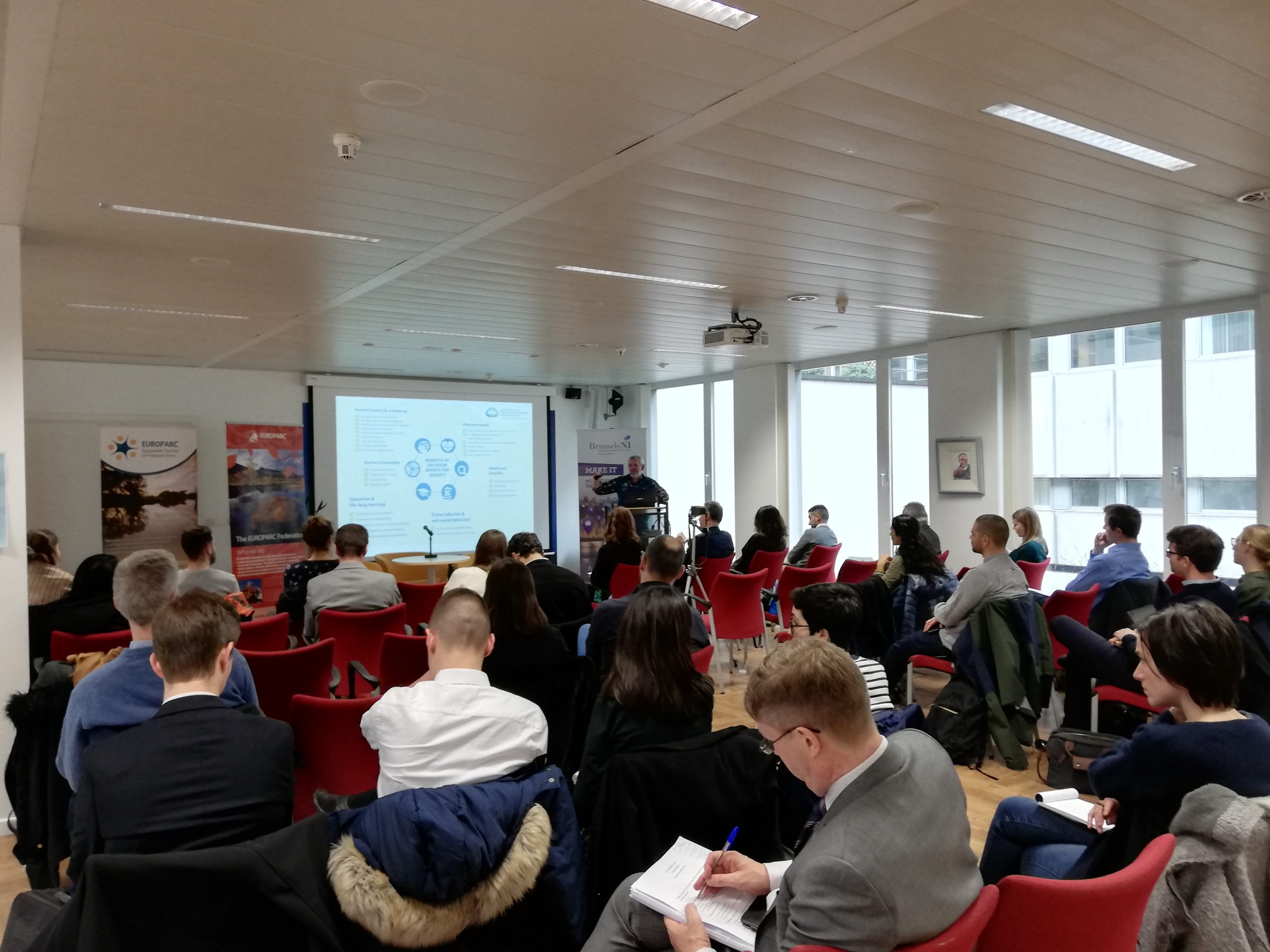
Audience. Office of the Northern Ireland Executive in Brussels, 2020. Photo: Stefania Petrosillo.
Some conclusions: Why is it important?
It is important to carry out transversal management plans that take into consideration the vision, objectives and solutions of all the actors involved in the life of the protected areas. In addition, an effective communication of the message will allow us to reduce the impact of our activities on biodiversity and the landscape in general. EUROPARC is developing a Toolkit to help you in implementing and achieving the mentioned objectives.
The event also led to draw some conclusions on the important points to be addressed in the coming years, both at the institutional-political level and at the local level by protected area managers and sports federations or clubs:
EUROPARC Federation:
- A holistic approach is needed, through networking and partnerships.
- Importance of having an influence in the policy makers and other sectors as the Sustainable Tourism Industry.
- Objective: innovative communication and management of Protected Areas.
- Connection with the programme ‘‘Healthy Parks, healthy people’’.
We all need nature. We want to have a positive impact and we want to make a change, but the hardest thing to change is people’s mind (Carol Ritchie)
ENOS:
- For outdoors sports as we use other peoples’ land, we want to make sure we do so in a responsible way.
- The Green Deal is a good starting point but no a static stone, it’s fluid, it can change.
Outdoor Sports cannot only be part of the problem, we need to be part of the solution (Michael McClure)
DG EAC, Yves Le Lostecque, Head of Sport Unit:
- The vision of sport has changed since 10 years ago: now at EU level, sport is also about social inclusion, education, physical activity, health, jobs creation, environment… some recommendations were already adopted in 2016 on sustainability.
- In the future, much more will be done on the field of green sports, because of the Green Deal. The Commissioner Mariya Gabriel is very interested in this topic and the discussion has already started: environmental concerns will be more and more taken into account.
- The new EU plan for sport is a golden opportunity for the environment to be integrated into the sport plan.
- ERASMUS+ is the main tool for projects related to the topic, which will have more budget in order to keep with the good work among the Member States.
We need to make sports, as other –human activitiy to be as green as possible (Yves Le Lostecque)
DG ENV, Nicola Notaro, Head of Nature Protection:
- The European Commission has already produced a Guidance document on the impact of tourism in PAs, but now can be a good moment to update and complete it.
- Important to take into account all types of protected areas, as periurban parks and green spaces for people living in urban areas, where is good to practise outdoor sports.
- Protecting nature and enabling activities such as Outdoor Sports will result in a benefit for the whole society, but tourism is both an opportunity and a pressure, so need to understand the elements of quantity and infrastructure pressure.
- There is also an opportunity on Outdoor Sports to reduce social inequality and fight for social inclusion.
- Important to align actions and initiatives with the EU 2030 Biodiversity Strategy.
- LIFE will remain the tool to develop projects in the field of nature conservation.
This is just the beginning of a dialogue between our two communities, so that we can identify a set of concrete actions (Nicola Notaro)
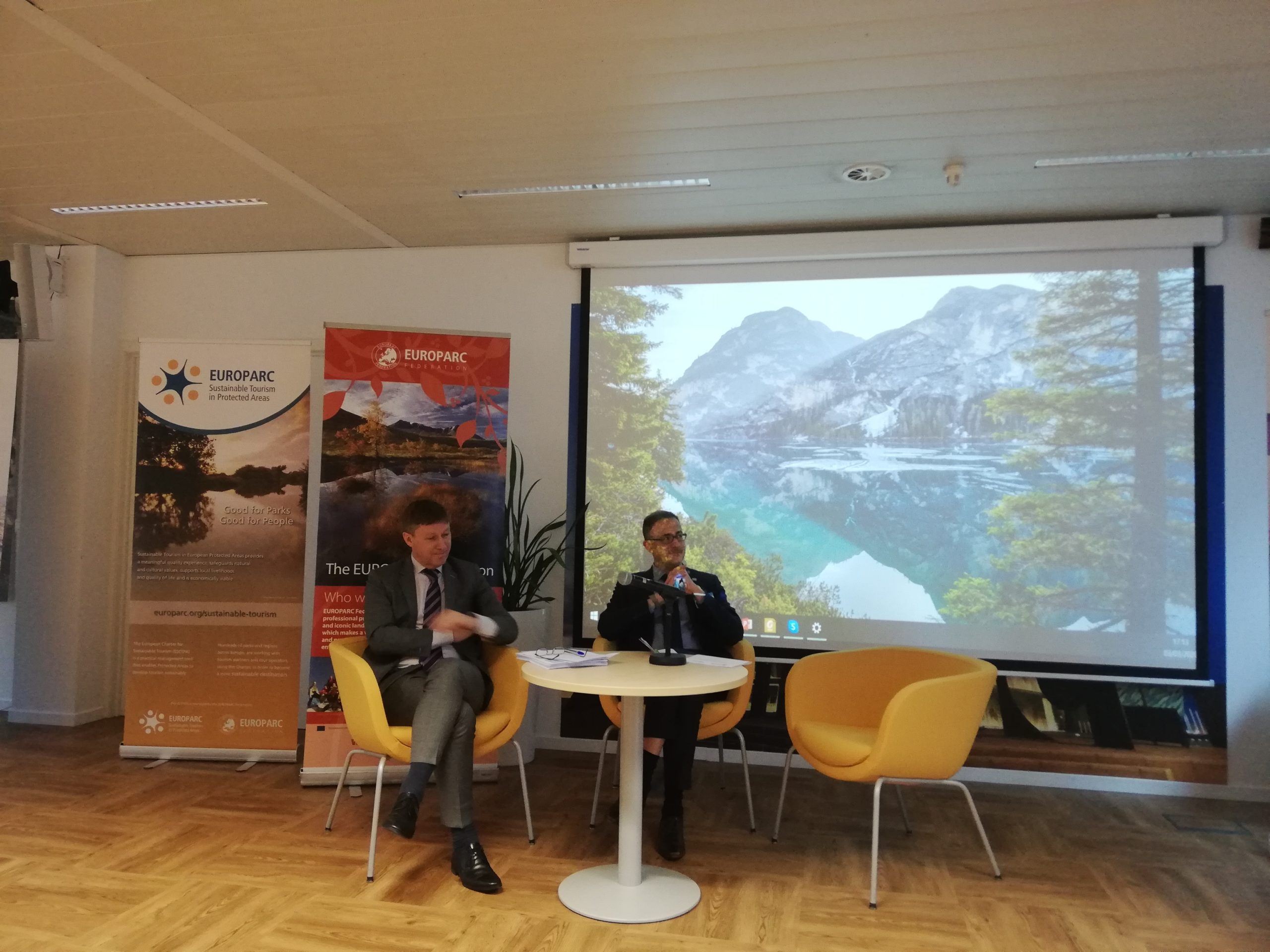
Yves Le Lostecque and Nicola Notaro. Office of the Northern Ireland Executive in Brussels, 2020. Photo: Stefania Petrosillo.
Did you miss it?
Do not worry, if for some reason you could not attend the event, in addition to the previous conclusions, you will find here the presentations made by EUROPARC and ENOS:
- Presentation PDF EUROPARC Federation, by Alberto Robles, Policy Assistant.
- Presentation PDF ENOS, by Mike McClure, Chairman.
More information at the Outdoor Sports Knowledge Hub.
During the next months, we will discuss possible initiatives and/or future projects together with our colleagues at ENOS in order to bring together the fields of environmental and sports education.
If you have any questions, suggestions, or would like to discuss a particular recommendation, do not forget that this is an open and multidisciplinary initiative, so we will be happy to hear about your vision; please contact us at: policy.assistant@europarc.org
We would like to say a big thank you to Sport Northern Ireland Executive Office for allowing us to host the event at their venue, as well as our colleagues at ENOS and all the participants of the event. Stay tuned for more information!
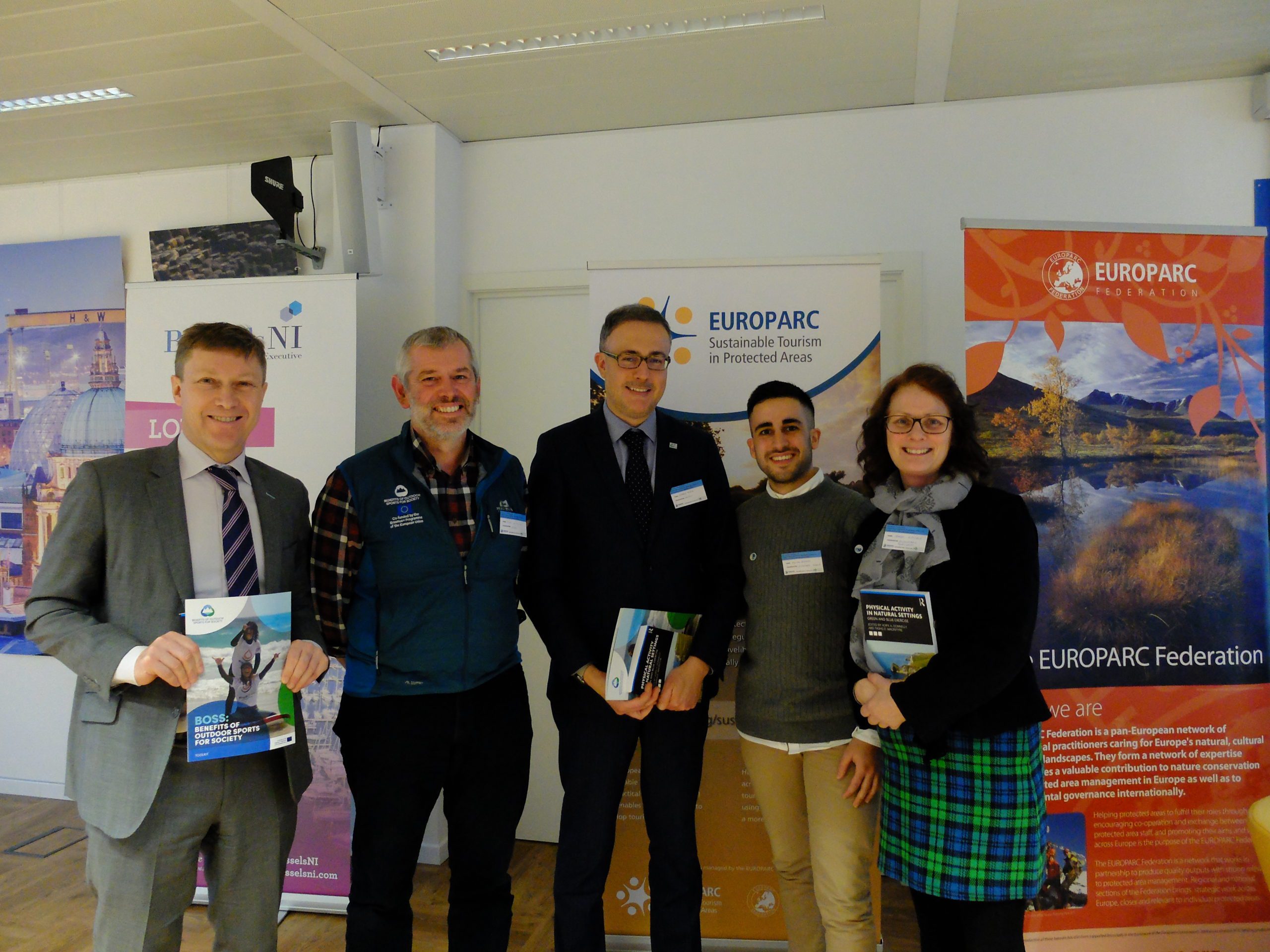
Yves Le Lostecque, Michael McClure, Nicola Notaro, Alberto Robles and Carol Ritchie. Office of the Northern Ireland Executive in Brussels, 2020. Photo: Stefania Petrosillo.
Downloads
Healthy nature for a healthy society
Healthy nature for a healthy society, photo by Alexandra Koch, Pixabay https://pixabay.com/users/alexandra_koch-621802/
In the midst of this global health crisis, Carles Castell Puig shares with us the important view of an ecologist on how this pandemic is closely related to the human destruction of natural habitats. On how our health depends on healthy ecosystems and how we must change. Carles is also a member of the EUROPARC Commission on Health and Protected Areas.
Healthy nature… for a healthy society
article issued by Carles Castell Puig, Barcelona
Biologist. Ph.D. in Ecology. Expert in nature conservation
These days, beyond the health news on the evolution of the coronavirus pandemic, there are also numerous articles and reflections from the most diverse areas of knowledge. The present and future derivatives of this deep global crisis are analysed from the fields of economics, sociology, philosophy or culture, to give just a few examples, posing scenarios and challenges for humanity.
However, few contributions have emerged from environmental disciplines, and more specifically from the conservation of the natural environment, despite the fact that it has a very direct and fundamental relationship with the current epidemic and with the risk that this situation will be much more frequent in times to come.
Many scientists have shown how the impact of unsustainable human activity on natural systems causes the degradation of habitats and the loss of biodiversity. The latest report presented by experts in Paris last year speaks of a million species at risk of extinction worldwide. Beyond ethical considerations about the annihilation of the common natural heritage, a complementary, more anthropocentric vision, based on the services that ecosystems offer us, that is, the contribution of nature to our health and well-being, has recently become very relevant.
We are no longer only talking about a moral or aesthetic position on the importance of conserving a certain species or ecological process, but recognising that our well-being and quality of life depend on all of this.
Nature provides us with food, water, fuel, and medicine; regulates the climate, protects soil fertility, reduces erosion and avoids extreme catastrophic events; and it offers environments for leisure, sports, education, art or spirituality. In a society increasingly concentrated in large cities, sedentary lifestyle and the loss of habitual contact with nature are factors directly related to numerous diseases and physical and mental disorders, such as obesity, diabetes, hypertension or depression.
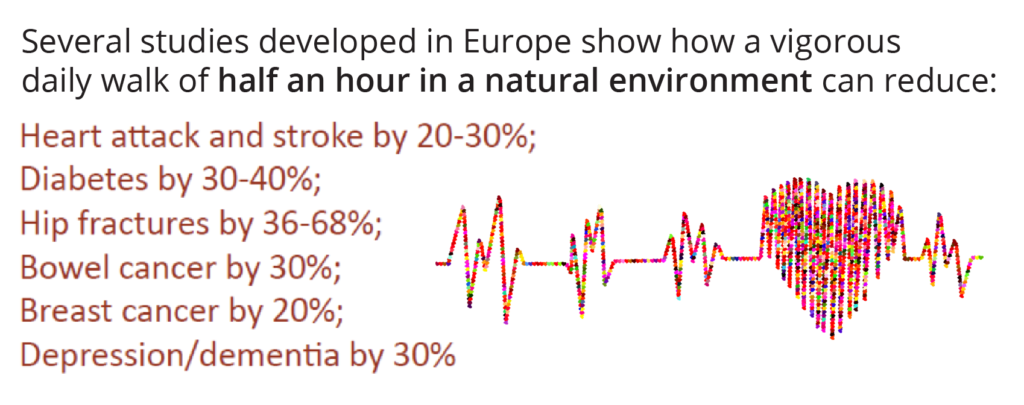
Other recent works affirm that the “dose of nature” necessary to contribute to good physical and mental health is around two hours per week. In this general context, nowadays we must consider how natural systems also play a key role in the appearance and spread of epidemics that affect human species.
The ecology of disease
In the article The Ecology of Disease, published in The New York Times in July 2012, Jim Robbins collected and analyzed the main lines of research at that time on epidemics, and their relationship to the degradation of natural habitats. The models already indicated how most epidemics (AIDS, Ebola, SARS) do not happen “simply”, but are largely the result of our impact on nature.
The data showed how 60% of emerging epidemics originate from animal species and two-thirds of these from wildlife. The changes we cause in their habitats (often the complete destruction) cause changes in the biology of fauna species —their diet, behaviour, reproduction, mortality— that can have important repercussions on human populations.
For this reason, scientists talk about “the ecology of diseases” and some projects with a global vision of health (Ecohealth) have been launched, based on the fact that people’s health is absolutely linked to the health of ecosystems and the health of the planet as a whole.
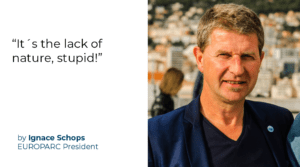
Read also the article by Ignace Schops “It´s the lack of nature, stupid!
There are numerous scientific evidences that demonstrate these relationships. One of the most studied fauna groups, due to its importance, are bats, especially those that feed on fruits. This group has co-evolved over millions of years with a type of virus, henipaviruses, which cause little more than the equivalent of a cold in these animals. However, if these viruses are passed on to humans they are lethal in many cases.
This is what happened with the Nipah virus in Malaysia and the Hendra virus in Australia at the end of the last century, with hundreds of deaths. In both cases, the origin was the destruction of bats’ habitat, which interacted with the new environment: pig farms, in the case of Malaysia, and new developments, in Australia. Similarly, there are many other examples. Like the study showing that deforestation of only 4% in the Amazon caused an increase in malaria of 60%. In the eight years since the appearance of the article in The New York Times, scientific works have continued to confirm and expand the knowledge and relevance of this direct and worrying causality.
Today, many experts point out that all emerging diseases in recent decades stem from the combination of human intrusion into natural environments with demographic and economic changes.
The pathogens that cause these diseases, and their subsequent mutations, come from wildlife and reach people through the intense transformations that we produce in the natural environment. Globalization and large urban agglomerations do the rest.
Destroying nature has been said to be like opening Pandora’s Box. On the contrary, well-preserved natural systems are the guarantee of maintaining the fragile equilibrium that, when broken, causes pandemics like the current one.
Unfortunately, if we do not radically change our model of use of natural resources, they will become increasingly common.
And after this pandemic?
Once the current health emergency is over, it will be time to consider profound model changes. In all the fields. In our relationship with nature as well. Natural systems must be protected, conserved, restored and rationally managed.
This logically goes through a change of social, economic and political paradigm, along the same lines of initiatives based on the economy of the common good and social justice, among others. Hopefully, this period of slowing down the pace of our lives will serve to rethink our priorities. As individuals and as species. We are risking current happiness and future survival.
The EUROPARC Federation is supporting parks and protected areas to deliver health outcomes for people. The toolkit “Health and Well-being benefits” provides practical advice and inspiration from other initiatives ongoing in Europe.
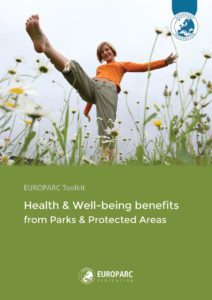 Meanwhile, EUROPARC is preparing the guidelines of the initiative Healthy Parks, Healthy People Europe. It aims to provide a structured approach and resources for Parks to maximise their contribution to public health and well-being, whilst underlying the importance of protecting, restoring and investing in biodiversity.
Meanwhile, EUROPARC is preparing the guidelines of the initiative Healthy Parks, Healthy People Europe. It aims to provide a structured approach and resources for Parks to maximise their contribution to public health and well-being, whilst underlying the importance of protecting, restoring and investing in biodiversity.
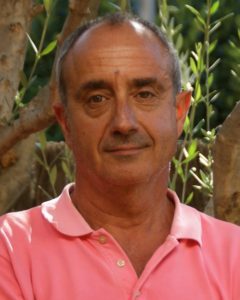
Article issued by Carles Castell Puig
Biologist. Ph.D. in Ecology. Expert in nature conservation and member of EUROPARC health and protected areas commission
News from Brussels in exceptional times
European Institutions are open despite the difficulties. The European Commission and Parliament are working, mainly remotely, while public meetings and events are cancelled or postponed.
What is happening currently at the European Institutions during the lockdown?
As we know, the current “hot” priorities of the debate in the European Institutions are the coordinated management of the COVID-19 crisis. The focus is on the EU aid to the national sanitary systems, to fund scientific research and to support the European citizens economically impacted by the lockdown measures. To stay tuned, you can visit the official website of the three institutions : The European Council, The European Commission and the European Parliament.
Inevitably, even if the Commission and the Parliament are continuing to work on other crucial subjects, several decisional processes are suffering delays.
In this complex framework, some EU initiatives, very important for Protected Areas and Natura2000 sites, have been postponed:
- The publication of the Biodiversity Strategy 2030 and Farm to Fork Strategy, initially planned for end of March has been postponed to April 29.
- The political groups of the European Parliament agreed to postpone the vote of the new Common Agricultural Policy (CAP) to after summer.
Some international events, linked to Protected Areas, are also impacted:
- COP26 on Climate Change in Glasgow (UK) is postponed. (More info on the UNFCCC website)
- COP15 on Biodiversity in Kunming (China) is also postponed. (More info on the CBD website)
- The IUCN Congress in Marseille (FR) is rescheduled to the 7-15 January 2021. (More info and update here)
Nature on the back burner?
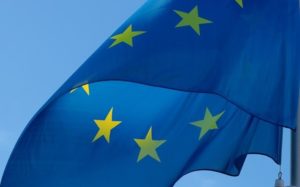
.
Well aware of the complex and challenging times we are living in, EUROPARC is strongly convinced that the EU Green Deal shall remain the main roadmap to guide European policies and budget allocations towards a more sustainable Europe, despite the current crisis. Now, it’s time.
The general attention to environmental issues, biodiversity loss, and climate change impacts, are clearly at risk to lose importance in the eyes of public opinion – and if decision makers will delay process and actions. EUROPARC is therefore encouraging the EU institutions to progress with the implementation of the Green Deal roadmap.
Timeline in the policy process is crucial: finding the right moment to propose a new legislation will have an impact on the reception of this latter. It´s the concept of windows of opportunity.
Nature, health and recovery perspectives
Environmental and health challenges are strictly connected, also in the COVID-19 crisis as the United Nations Environment Programme (UNEP) and the international scientific sector are strongly underlying in these days. EUROPARC strongly believes that this crisis, despite its tragic impacts, should be turned into an opportunity to reaffirm the importance of Nature in society.
There is no competition, no contradiction between protecting nature and protecting human health, healthy ecosystems are necessary for human well-being and for sustainable economy.
The European Union and the Member States should now find the ways and the resources for the management of the current sanitary and economic crisis without losing the long-term perspective that the European Green Deal represents.
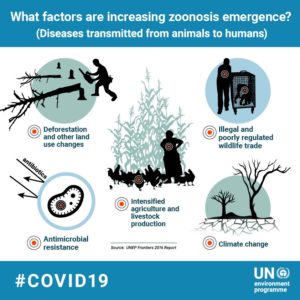
UNEP : https://www.unenvironment.org/covid-19-updates
UNEP VIDEO LINK : https://twitter.com/i/status/1245663225691152385
What can you do ?
1. Contribute to the policy-making process sharing views with the European Commission!
Share your views for climate action:
It is important that nature conservation professionals actively contribute to this transparent policy-making process highlighting the role of Protected Areas and Natura2000 for Climate action. They are part of the solution.
Two initiatives are opened :
The new Climate Law
At the beginning of March, the Commission proposed a new Climate Law. The main objective is to enshrine the 2050 climate-neutrality objective in EU law. The Commission opened a public consultation : an opportunity to give feedback about the proposal until the 1st of May 2020. Have a look here!
The 2030 Climate Target Plan
Among others, the objective of the new Climate Law is to review the existing greenhouse gas emission reduction target for 2030 enhancing its ambition (from 40% to 50-55% CO2 reduction). Stakeholders are invited to give their opinions on what is needed in the Climate Target Plan (inputs such as necessary actions in different sectors, specific policy design to increase climate ambition…) There are 2 ways to contribute: Send feedback about the target plan by 15th of April or answer to the questionnaire for the public consultation until 23th of June. Have a look here!
Share your perspective for the future of the LIFE Programme
The LIFE programme is the EU’s funding instrument for the environment and climate action created in 1992. This year will be voted the new budget, an increase is foreseen! Through a survey, you are invited to give your opinion and comments about the LIFE programme. The questionnaire is available here and will be open until 27 April.
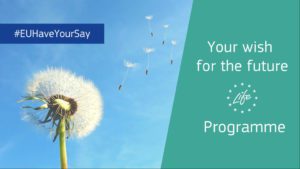
2. Raise the importance of nature!
The lockdown is an opportunity to connect with the world through social media and communicate on Nature! Make use of your channels to promote what seems important for you. You may use all your images and material to raise the importance of your Protected Areas. It is an occasion to attract future new visitors by making them dream of travelling!
3. Prepare your next conservation project
The call for proposals of LIFE Programme are now open until mid-June ! This programme is the European Commission’s financial instrument for supporting projects in the fields of environment and climate. Don’t miss your chance to make your idea come true! You can find further information on this article. Do not hesitate to contact us if you need advice or if you are looking for partners.
4. Share your own stories of ordinary heroes with #EuropeanAgainstCovid19
Are you playing your part to help fight the spread of the virus and support others during this pandemic? To highlight the positive stories of strength and solidarity all over Europe, use the hashtag #EuropeansAgainstCovid19 . It is an opportunity to share your own stories of ordinary heroes or to highlight what your organisation or volunteers are doing to help in this crisis. The European Parliament will showcase these portraits on their media channels. Let’s emphasize positive attitude across Europe!
At EUROPARC Brussels, we will keep following policy update and keep you informed on the last EU News related to Nature and Protected Areas!